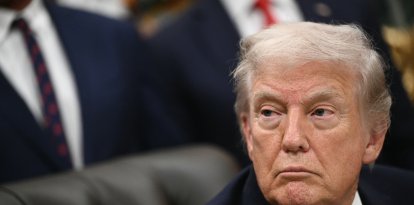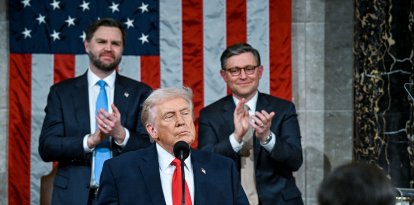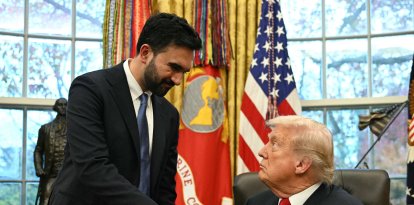Trump is removed from the ballot in Illinois by citing the 14th Amendment, but the former president promises to appeal: 'An unconstitutional ruling'
Judge Tracie Porter ruled in favor of a group of voters and agreed to withdraw the Republican's candidacy for both the primary and the general election.

(Cordon Press)
Donald Trump again crosses paths with the 14th Amendment, this time in Illinois. It turns out that Cook County Judge Tracie Porter ruled in favor of a group of voters and removed the former president from the ballot for both the primary and general elections. However, the Republican's campaign announced that they will appeal the ruling, which they described as "unconstitutional."
With this measure, and pending the aforementioned appeal, Illinois becomes the third state to try to eliminate Trump from the polls, after Colorado and Maine, whose decisions were later paused by higher courts.
According to Trump's campaign, the judge's resolution is "unconstitutional," so they will appeal "quickly." Conversely, the Free Speech For People group, which spearheaded the disqualification effort in Illinois, hailed the ruling as a "historic victory."
What does the 14th Amendment say?
Porter is not the first judge to invoke the third section of the 14th Amendment to try to eliminate the former president from the elections. The amendment establishes that any person who has taken an oath to the Constitution will not be able to hold public office again if they participate in an "insurrection or rebellion" or lend "help or protection" to the enemies of the supreme law of the land.
"No person shall be a Senator or Representative in Congress, or elector of President and Vice-President, or hold any office, civil or military, under the United States, or under any State, who, having previously taken an oath, as a member of Congress, or as an officer of the United States, or as a member of any State legislature, or as an executive or judicial officer of any State, to support the Constitution of the United States, shall have engaged in insurrection or rebellion against the same, or given aid or comfort to the enemies thereof. But Congress may by a vote of two-thirds of each House, remove such disability," the text says.
As for this last part, it means that the disqualification can be reversed if both chambers of Congress ratify it with two-thirds of the votes.

























